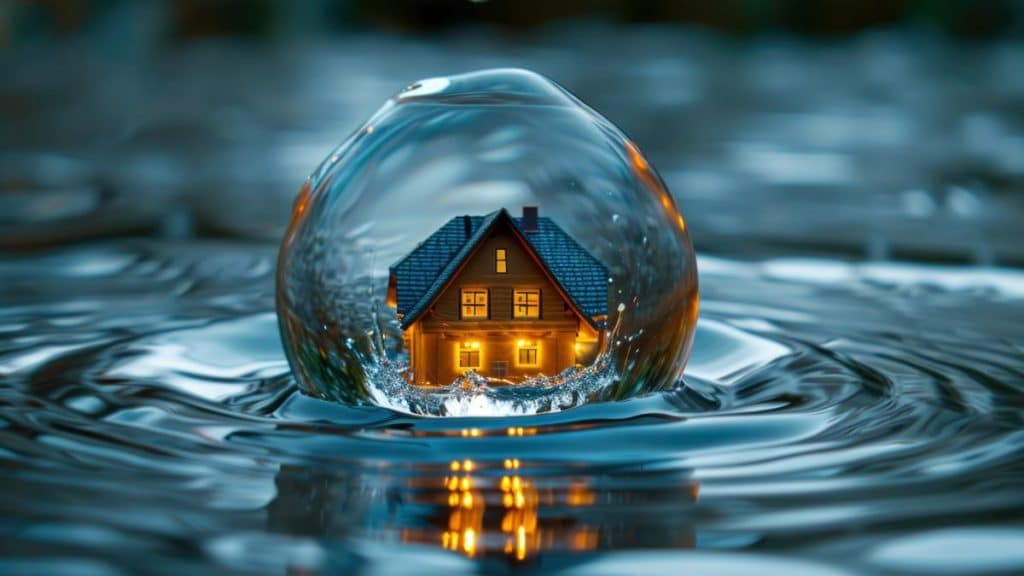If your water smells like rotten eggs, or you are dealing with an unpleasant taste, you could have some real issues on your hands. It’s true that even though residents rely on clean water for various reasons, poor water quality can impact even basic tasks.
The good news is that there are different solutions to help improve the water quality in your home. As you continue reading, you’ll learn about common water quality issues and solutions to help you enjoy better water quality.
Common Water Quality Problems
Before diving into different solutions to improve the water quality in your home, let’s discuss some of the most common water quality issues in residential homes.
Odd Taste or Odor
One of the first things that can really impact your water quality is when an odd taste or smell is present. Maybe you immediately notice a rotten egg smell as soon as you turn on the water. Or perhaps it reeks of metal.
It’s even possible that you have been purchasing more cases of bottled water to avoid the unpleasant taste of your tap water. If these issues seem to occur more often, it may be time to come up with solutions to improve your water quality.
Dry Skin & Hair
It is true that poor water quality can cause dry hair and skin. Have you been splurging a lot on hair conditioner, soap, and body lotion lately?
If you’ve been doing these things only to still end up with dry skin and hair, it’s time to look at the quality of the water you’re using. Various minerals, including lime and chlorine, could be to blame for your dry skin and hair.
Stained Clothing & Dishes
Are your shirts, bedding, and towels stained after washing? Or perhaps you notice more wear and tear on them after you’ve just finished laundry. Your dishes can take a beating too and experience staining, depending on the minerals present in your water.
For example, sulfur, iron, and manganese can leave orange or yellow stains on your dishes and clothing. Sometimes these stains can even be impossible to remove. And if you consider having them professionally removed, it could really get expensive.
Buildup on Plumbing
The buildup of limescale on your plumbing, washers, dishwashers, and other appliances could indicate poor water quality. Limescale buildup is common with hard water.
It can cause issues with your plumbing systems and be extremely costly to correct. In addition, it shortens the lifespan of your appliances and creates issues you could rather do without.
Water Appears Dirty
Water that is of good quality should always look clear instead of cloudy. So if you notice that your water appears cloudy, or you see particles, it’s likely to be contaminated. Contamination is generally caused by minerals, even though bacteria could be to blame. This is especially true if your main water source is a well.
Ways to Improve Water Quality
Now that you’re aware of the different common issues that can impact water quality, here are some solutions to help improve it.
Water Filtration System
A water filtration system in your entire home is critical to improving your water quality, especially if you have hard water. Reverse osmosis demineralization is a great solution and one of the most effective methods to improve poor water quality.
Having tap water with a terrible taste, appearance, and quality can be the result of dangerous contaminants. Having a water filtration system installed will provide your home with natural, clean water.
Water Softener
Water softeners help to remove magnesium and calcium present in hard water. This is another solution that is impactful for those dealing with hard water. An ion-exchange water softener is one of the most popular on the market today, as it contains resin beads that help to make the water soft.
Moreover, the water softeners also get rid of minerals in the water.
UV Light System
Finally, a UV light system is beneficial for improving your water quality. A UV light system works a little bit differently compared to others listed above.
UV light systems work by utilizing a UV light that cleans the water and eliminates almost 100% of viruses and bacteria present in the water. Purifiers are useful as they also eliminate fungi and algae.
